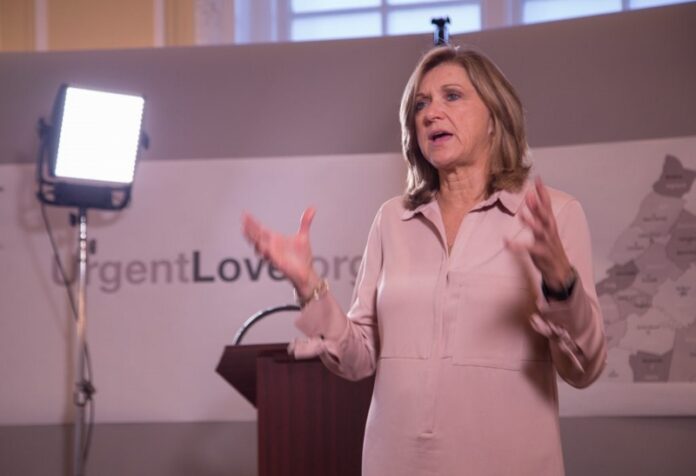
For the past month the Roanoke County public school system and the Prevention Council of Roanoke County have been conducting a series of public meetings on raising “Smart Media Kids,” focused on making sure younger students are using their connection to the outside world via their phones wisely – and safely. The last of these sessions is scheduled for April 18 at Hidden Valley Middle School.
That session will be geared towards parents of students at Cave Spring, Green Valley and Oak Grove Elementary Schools and Hidden Valley Middle Schools, but parents at other county schools that may have missed the earlier sessions at their more local schools are welcome to attend the April 18 meeting from 6:30-7:45 pm.
Nancy Hans, executive director for the Prevention Council, said after the dawn of Facebook more than a decade ago people that worked for the school system realized that parents needed to be aware of the pitfalls for kids that put private information about their lives online. That’s when Hans and Carolyn Overfelt, from Roanoke County Schools, started making the rounds.
“We would teach parents how to get on Facebook and how to Google yourself,” said Hans. “It really came out of the Guiding Good Choices parenting program, where we do things that protect our kids and then [explain] the risk factors.”
Hans said connecting to others around the world “is a good thing – but then we started to see that … once the IPhone appeared, things began to tumble [towards risky practices] even more and more. It was almost like this huge wave and it just kept coming and coming.” She said the campaign connects with the Prevention Council’s overall mission of teaching young people how to avoid risky behavior – from drug and alcohol abuse, bullying and other factors. “There are risk factors around the IPhone and social media.”
Hans urges parents not to let their children have an IPhone or similar device until they are older – say 7th or 8th grade, but where they must have one at an earlier age to be aware of how that phone is being used – and who their children are connecting with. “Every year we give kids protection from risk is another year we can give that protection – from things that can possibly be risky.” With brains not fully developed until age 25 it’s also a way for youth to avoid impeding their intellectual progress, she said.
An online resource called CommonSenseMedia.org is a guide for the Smart Media Kids public sessions and for Hans. “It also affects kid’s brains. They are younger and younger when getting these phones – as young as first grade.” If a phone is in order then write a contract with your child about what is acceptable behavior – how they can and cannot use that smart phone. “[Then] you don’t have all this craziness if something goes wrong – you set up the rules ahead of time … and they know what the boundaries are.”
There’s peer pressure to have a smart phone, which has become a “huge piece of everyone’s life,” noted Hans, “and we are now speaking to parents of fourth and fifth graders. They’re also concerned about all the different apps.” That peer pressure weighs on parents – not just the kids – as they see other families give their young children a smart phone, in large part so they can stay connected to parents and vice versa.
After a series of opioid and heroin conversations where the Council also partnered with the Roanoke County school system, the Smart Media Kids sessions seemed to be a logical next step for a series of public meetings with parents. “Once you give the phone [to a young child] parenting goes up 110 percent,” noted Hans; “you have to know all the places [they are visiting]. This is really true prevention.”
Gene Marrano

